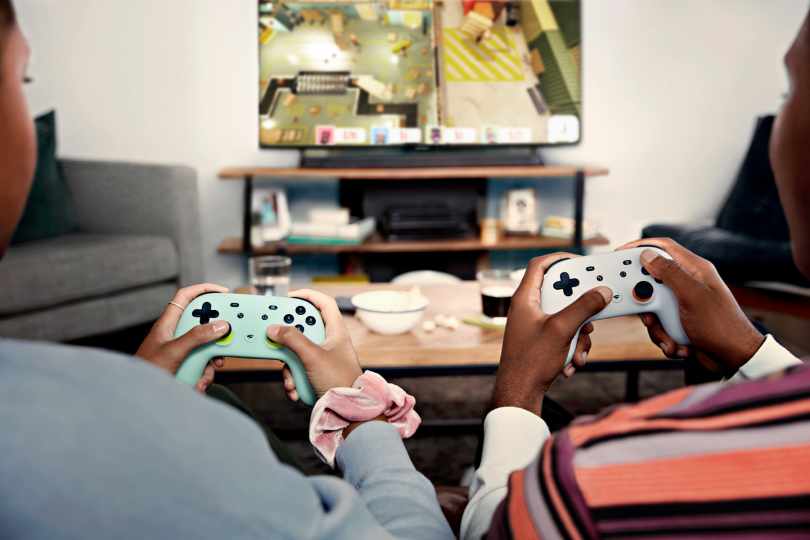Most people play video games purely for enjoyment. Like most entertainment forms, such as watching movies or listening to music, we don’t usually think about how such activities can influence and affect our brains. This article will explore the fascinating relationship between our brain and video games, and how video games affect the brain, what we discover may surprise you.
Table of Contents
Do Video Games Affect the Brain and make it Lame?
You’ve probably heard before that video games affect the brain and make it rot. Concerned parents have been repeating that line to the bane of gamers throughout time. But are they right? Can gaming reduce the effectiveness of your brain?
Much like drugs or alcohol, science has shown that games can be addictive and can produce many of the same symptoms of other addictions. Sleep deprivation and behavioral changes, such as irritability, are as common with gaming addiction as anything else.
The American Psychiatric Association currently does not recognize “gaming addiction” as a medical disorder. However, the American Medical Association does recommend a limit of two hours per day for what they term as “gaming overuse.”
Their studies noted that people could become so preoccupied with gaming activities that they begin to neglect their real life. Personal hygiene, social interaction, and job performance can all show a decline when gaming addiction begins to take hold.
Your Brain Can Gain From Some Games, Too!
With the scientific findings above, you may think that games indeed do rot your brain and want to avoid them. However, it’s not all bad when it comes to gaming affecting your brain. There are certain benefits to gaming as well.
Along with the apparent brain boosts that gaming provides, such as hand-eye-coordination and reflexes, gaming can build-up your brain in other ways also.
It’s becoming more common to use gaming for rehabilitation purposes. Consoles such as the Nintendo Wii have been used to affect mental and physical rehab with varying improvement levels.
Nintendo’s Starlight Foundation has been operating for nearly 30 years. Starlight is a mobile gaming station designed for use in children’s hospitals and has been quite successful as a rehabilitation aid for physical and mental disabilities.
Gaming For Fun and Profit
In addition to these uses in rehab centers and hospitals, you can use games to improve your brain from the comfort of your home. There has been a considerable rise in what has come to be called brain games. Brain games exist for nearly anything these days, such as increasing problem-solving skills, language learning, or conquering fear.
Where does this leave our analysis of the effect of gaming on the brain? It all comes down to your personal use and judgment. Like alcoholic drinks, pharmaceuticals, or other things, there is the proper use and improper use of video games.
While excessive gaming can undoubtedly have an addictive effect on your brain, proper use and moderation can be extremely beneficial for your brain.
Even games that do not have specific learning applications can be beneficial for your brain as stress-relievers. In today’s high-paced, high-stress world, the alleviation of stress is more important than ever. Stress-reduction is a vast market with extraordinary value, especially since we know that stress can be a catalyst for physical and mental illness.
A Game by Any Other Name?
Whether you are racing down a busy highway, blasting aliens in a distant galaxy, or visiting virtual casinos at  gaming is not a useless activity. Gaming can have a tremendous effect on your brain. Such “restful activity” is a way to relax your physical body while keeping your brain alert and active, which is why it’s used for rehab.
Gaming can provide fantastic opportunities for healthy social interaction, even in today’s socially-distanced world. So don’t deny yourself the incredible brain benefits that gaming can provide. The games of today have beautiful orchestral scores and production budgets that can rival Hollywood movies.
Most importantly, when enjoyed responsibly, games offer a form of interactive entertainment that can be very beneficial for your brain, rather than rot it away.

Can you tell us more about this? I’d care to find out some additional
information.
Hello, Neat post. There’s an issue together with your
website in web explorer, would test this? IE nonetheless is
the market leader and a big part of other people will pass over your excellent writing because of this problem.
I pay a visit daily a few web pages and blogs to read posts, except this
website presents feature based writing.
What i do not realize is actually how you are no longer actually a lot more neatly-liked than you may be now.
You’re so intelligent. You recognize thus significantly in relation to this matter, made me personally consider it from numerous various angles.
Its like men and women aren’t interested until it is something to do with Girl
gaga! Your individual stuffs great. Always maintain it up!
Simply want to say your article is as amazing.
The clarity to your post is just cool and that i could suppose you’re an expert on this subject.
Well with your permission let me to take hold of your feed to stay updated with imminent post.
Thanks a million and please carry on the rewarding work.
Today, while I was at work, my sister stole my iPad and tested to see if it can survive a 40 foot drop,
just so she can be a youtube sensation. My iPad is now broken and she has 83 views.
I know this is completely off topic but I had to share
it with someone!
cheapest online pharmacy india https://indiaph24.store/# online shopping pharmacy india
Online medicine order
mexican mail order pharmacies: mexican pharmacy – purple pharmacy mexico price list